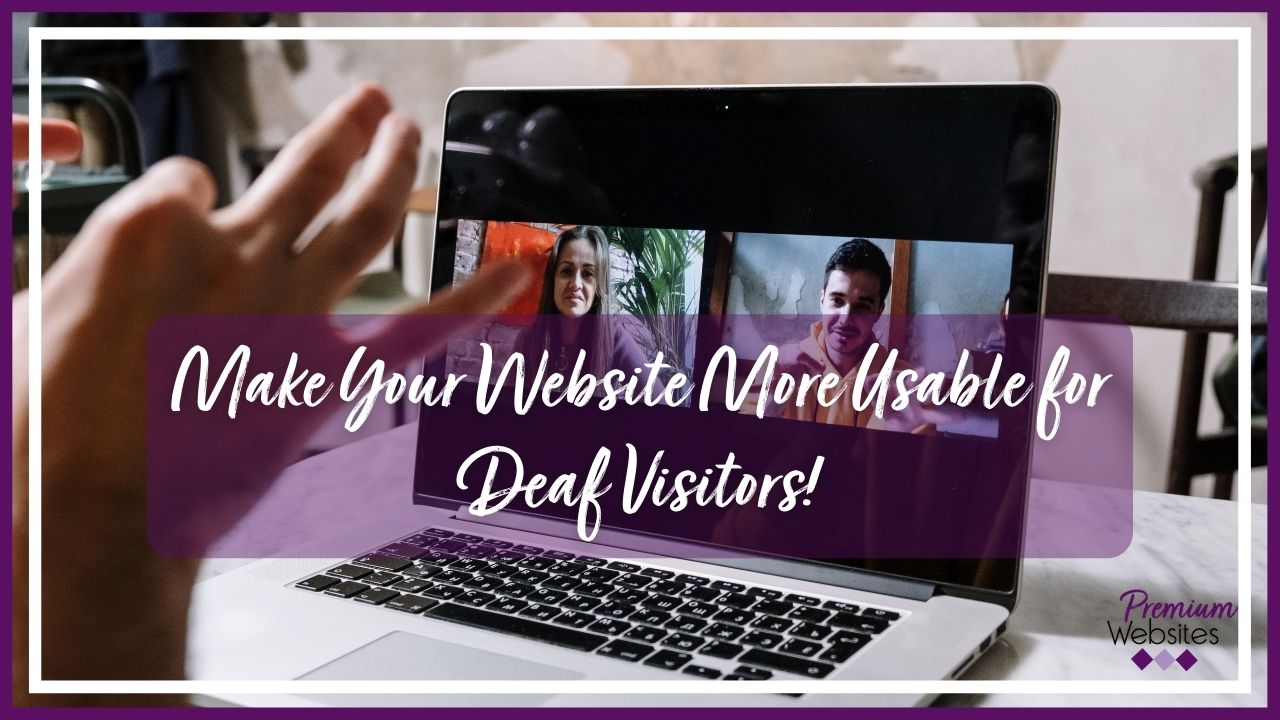
With estimates placing the percentage of deaf people at 5% of the world’s population, it’s imperative to ensure you’re not missing out on deaf website visitors. The most effective way to do that is to incorporate specific user experience elements into your website so it’s more accessible. This is even more crucial if your products are geared toward the elderly, especially considering that one in three people aged between 65 and 74 experiences hearing loss.
This article gives you ways to increase your website’s accessibility while shedding light on the difference an accessible website can make for your business. Premium Websites can help you create an ADA-compliant website to serve your customer base better.
How to Make Your Website More Accessible
Ensuring your website serves the deaf and hard of hearing requires adding visual signals to audio cues. You can do this by:
- Adding captions and subtitles to videos. These help deaf users understand the content of any video you have on your website. That’s particularly important in the case of explainer videos and other assets that are crucial for taking the next step in the customer journey. I use Zubtitle for captions.
- Syncing captions to audio and ensuring accuracy. Captions that are out of step with the visuals can confuse website visitors, particularly when displaying a process the user must follow later.
- Adding sound cues with icons and on-screen movement. Features such as a chat box that pops up and makes a sound are easy for someone with hearing loss to miss. Add a significant on-screen shift, such as a color change, to make them more visually prominent.
- Creating a more straightforward user interface and experience. Make the next steps for reaching the desired section of your website more intuitive by removing superfluous elements that overcrowd the viewport. Also, simplify complicated parts that require audio instruction.
Making these changes makes your website more usable and welcoming to a significant percentage of users and can lead to an increase in your conversions and online revenue.
It’s a worthwhile use of your effort because it benefits website visitors who may be shopping in environments where listening to audio is inconvenient. That means you raise visitor satisfaction across the board while decreasing your bounce rate.
Professionals Who Can Help You Increase Your Website’s Accessibility
Making a website fully accessible requires technical knowledge, so it’s wise to seek help from designers and developers. The types of experts you need depend on the kind of website you’re running.
For example, if you’re operating an e-commerce store from Vancouver, WA, your needs are best served by shopping cart development companies. One of the most convenient ways to find these professionals is through online job boards and marketplaces.
These platforms make finding the right fit easier because you can compare different providers’ skill sets, past projects, experience levels, and budget requirements. Some even offer the ability to chat with each company before making a decision, so you can get an accurate picture of how well they understand the principles of accessible web design.
A Website the Deaf Can Easily Navigate Widens Your Customer Base
When users with impaired hearing can enjoy the content on your website and navigate it well, you deliver a more engaging user experience. To increase your website’s accessibility, speak to the team at Premium Websites.
Guest blog post by:
Kelli Brewer is part of DeployCare, which offers support to service members and their families – she shares resources and solutions for issues commonly faced by military families before, during, and after deployment.



